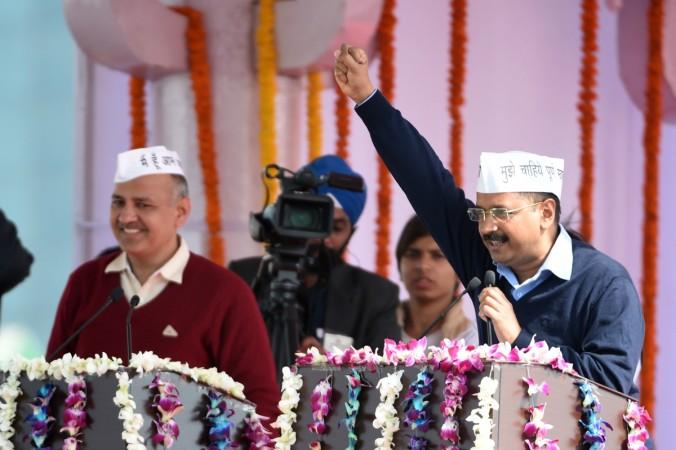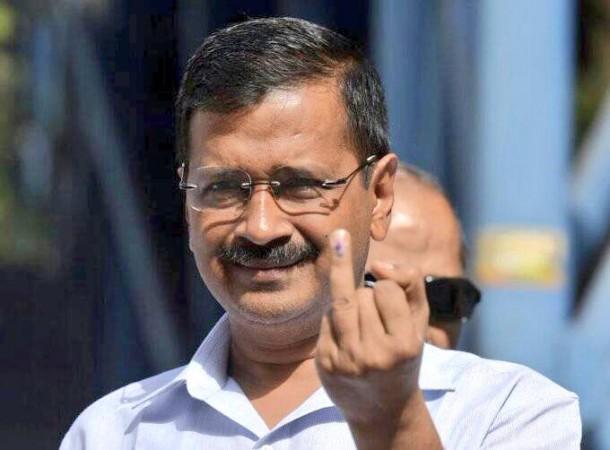
In what is widely acclaimed as a reprieve to Delhi's ruling Aam Admi Party government, the Delhi High Court last Friday set aside the Election Commission of India's (ECI's) recommendation for disqualification of 20 of its MLAs for holding the office of profit.
The issue in question arose when the government appointed these legislators as parliamentary secretaries to its ministers in March 2015. A subsequent petition filed in June in the same year before the President challenged the decision of the government. The government then swung into action by enacting the Delhi Member of Legislative Assembly (Removal of Disqualification) (Amendment Bill) 2015, excluding parliamentary secretaries from the office of profit. The President denied assent to the Bill and the ECI in this January decided in favor of the petitioners, upholding the disqualification of the said legislators.
Article 102(1)(A) of the Indian Constitution bars an MP or an MLA from holding any office of profit under the government of India or in any state other than an office declared by the Parliament by law as not an office of profit for its holder.
Thus the matter challenging the propriety of the ECI decision came up before the Delhi High Court. A division bench of the court felt the ECI should take a fresh look at the matter. It felt the MLAs' contention that they were not given a proper hearing held good in law. MLAs had pleaded that this was against the principles of natural justice, and the decision of the ECI was ultra vires, unconstitutional and null and void in the eyes of law.
The relief for the Delhi government now is a huge one in as much as Kejriwal and his team will stand justified in public eyes for their claim of being victims to a malicious political game-plan. More so when a similar situation earlier in Chhattisgarh was not met with a similar approach by the ECI. Some of the former election commissioners joining the fray would only make AAP's contentions stronger and legitimate in the citizens' view. Questions may also arise about the undue haste with which the President's office dispose of such an important constitutional question. It was reported that the decision on a 132-page recommendation of the ECI was taken by his office the same day as it was put up before him.
Visionary BR Ambedkar had an apprehension that we would go astray on constitutional norms when the then nascent nation would put a few decades behind it. In his speech to the Constituent Assembly he had warned of this as early as 1948: "Constitutional morality is not a natural sentiment. It has to be cultivated. We must realize that our people have yet to learn it. Democracy in India is only top-dressing on an Indian soil, which is essentially undemocratic."
Unlike other traditional politicians, Kejriwal who started his public life on a different note altogether, had hurdles aplenty ever since he became the chief minister of Delhi. A tussle with the Centre over choice of appointing anti-corruption bureau (ACB) chief; ACB probing Deputy Chief Minister Manish Sisodia for allegedly awarding government adverts to agencies run by his relative (ACB has not found any evidence or filed FIR in this case); and former LG Najeeb Jung quashing the appointment of DERC chief appointed by the Kejriwal government may be a few cases to mention. Further, several of his legislators were arrested on grounds that did not elicit similar responses in similar cases elsewhere.
There were also issues such as law minister Jitender Singh Tomar being arrested on the charge of forging his educational certificates and Bawana MLA Ved Prakash joining BJP that caused embarrassment to the party leadership. Another situation that caused much more discomfort for the party brass was senior leader Kumar Vishwas's falling out with Kejriwal in April 2017.
The unfortunate incidents mentioned above are certainly not unusual for any government. However, the treatment of this government by the media and the other two major political parties is something totally unprecedented in the history of Indian politics.

That the post of the chief minister of Delhi is almost a titular one makes the job of Kejriwal's rivals easier. For Delhi is yet not a full state and it is governed under Article 239AA of the Constitution and the Government of National Capital Territory Act of 1991.
While we have had parties trying to rip each other apart by bringing up false allegations, we are now seeing political parties playing what may be best termed as the politics of mockery. Whatever Kejriwal did, there would be a joke doing the rounds about it. Even such positive measures as 'Odd and Even' became the butt of jokes. And the most unfortunate part is these jokes are coming mostly from the political parties.
Above all are the concerted efforts of a large section of media to portray him as a laughing stock. At the behest of rival politicians across party lines and those in the corporate world, a dedicated brigade is at work on social media to malign him to hilt too. And they can be seen crossing all limits of propriety. Schadenfreude may not have a better example!
Ask a Congress party worker about Kejriwal and instead of criticizing AAP policies, the person would say: But who takes Kejriwal seriously? The answer would be no different if you put the same question to a BJP worker.
In a way, the two rival parties don't see eye to eye on anything but Kejriwal. Looks like the game is: If you cannot beat him, mock him. The CM of the most important state of the country looks like a joker to everyone, and your job is done. You don't need to do anything else to take away from his political credentials. You reduce his vision to a clown's whims/eccentricities, and you have almost won the battle.
You laugh at his muffler but nobody points out the educational reforms that the AAP government has introduced in the state. You make fun of his coughing problem but no one would ever say: But he has come up with an almost path-breaking concept of mohalla clinics. No one would ever challenge your stupidity of making fun of a political opponent in the absence of a substantial political criticism on your part.
In a serious democracy, the politics of mockery would not have a place. But that is about a serious democracy. We don't have a taste for serious, constructive criticism. Having been fed a staple diet of empty rhetoric, we seldom understand the importance of vision in politics. Tall talk is something we have been brought up on, and tall talk is all we understand.
I am trying to understand the reason that brings both BJP and Congress together when they find an opportunity to be up in arms against Kejriwal.
Kejriwal speaks the language of the common man, he has small visions for the small but essential needs of the common man. He promises water, electricity, shelter, education while the other parties promise the moon.
When you promise the moon, you know very well you don't need to fulfill your promises, because they are unfulfillable. When you promise the basic essentials, you not only need to fulfill the promises but you also can and do fulfill those promises.
Herein lies the problem. In a country where politics has come to mean control, it would be suicidal to fulfill the basic needs of the people. You can control people when they have to beg before you for even their basic needs. Your only mantra is to keep your people powerless because that empowers you.
In a country like ours Kejriwal can be a big threat for those who believe in control. In fact, the frightened mainstream politicians can best be compared with the elite in the British era who felt threatened when they learned that the lower castes will have to be included in the stream of education. They could see their powers slipping out of their hands the way the mainstream politicians feel today in the face of Kejriwal.
Kejriwal does not offer the moon but he is a haystack in the floods for the common man, and it is important that this haystack is not swept away by the politics of mockery.
(Pradeep Kaimal is a Delhi-based energy journalist. Views expressed are personal.)

















